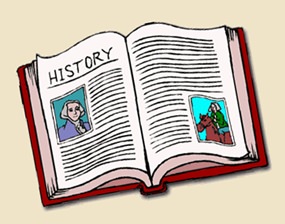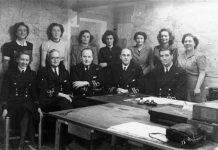Today is Tuesday, November 10, the 314th day of 2015. There are 51 days left in the year.
Highlights in history on this date:
1444 – Turks annihilate a Hungarian force at the Battle of Varna — now in Bulgaria — ending the European powers’ efforts to save Constantinople from Turkish conquest.
1729 – Portugal loses Mombassa to the Muscat Arabs.
1871 – American journalist Henry Stanley finds African explorer Dr. David Livingstone in Ujiji, central Africa, on Lake Tanganyika; delivers his famous greeting “Dr. Livingstone, I presume?”

1885 – The son of German engineer Otto Daimler becomes the first motorcyclist, riding his father’s invention 10 kilometers (6 miles).
1928 – Hirohito is enthroned as Emperor of Japan.
1937 – President Getulio Vargas of Brazil cancels elections and decrees the Estado Novo dictatorship.
1938 – Anti-Semitic legislation is adopted in Italy.
1945 – Western powers recognize Communist-dominated Albanian government.
1954 – The Iwo Jima Memorial is dedicated in Arlington, Virginia. The battle for Iwo Jima in Japan during World War II resulted in the deaths of 21,000 Japanese and 6,800 American soldiers.
1963 – A cholera epidemic in India and Pakistan kills more than 1,500 people in a few weeks.
1969 – The children’s educational program “Sesame Street” makes its debut on the PBS television network in the United States.
1970 – The Soviet Union launches Luna 17, which lands a roving vehicle on the Moon’s surface.
1975 – Angola becomes independent of Portugal in the midst of a civil war; the U.N. General Assembly approves a resolution equating Zionism with racism. The resolution is repealed in 1991.
1976 – Syrian troops and tanks enter Beirut, Lebanon, without resistance under an agreement for a multinational Arab peacekeeping force.
1980 – East German President Erich Honecker makes his first state visit to a western country — Austria.
1982 – The newly finished Vietnam Veterans Memorial opens in Washington, D.C.
1987 – Niger’s President Seyni Kountche dies in Paris, and is replaced as head of state by army chief Ali Seibou.
1988 – Soldiers open fire and kill at least 15 people in Sri Lanka when anti-government demonstrators defy a curfew.
1989 – Todor Zhivkov resigns after 35 years as Communist Party leader of Bulgaria.
1991 – Street fighting rages between Serbs and Croats struggling for control of Danube River town of Vukovar.
1992 – U.N. weapons inspectors in Baghdad remove 200 drums containing uranium from an Iraqi atomic facility.
1994 – Chandrika Kumaratunga, daughter of two prime ministers, wins presidential election in Sri Lanka.
1995 – Joseph Rotblat and the Pugwash Conference on Science and World Affairs, Britain, are awarded the Nobel Peace Prize.
2004 – Chile makes a step toward confronting its grim legacy of human rights abuses under the 1973-90 dictatorship of Gen. Augusto Pinochet by completing a lengthy report on torture and political imprisonment with testimonies from at least 35,000 victims.
2006 – Zimbabwe’s government launches a program to issue 99-year leases to black farmers allocated land seized mostly from white farmers.
2009 – The navies of North and South Korea clash at sea for the first time in seven years in what some analysts said was a provocation by the communist nation a week before President Barack Obama’s visit to Seoul.
2010 – President Barack Obama tells global leaders in Seoul, South Korea, that the burden is on them as well as the U.S. to fix trade-stifling imbalances and currency disputes that imperil economic recoveries everywhere.
2011 – Europe’s financial crisis eases as Greece installs a respected economist to replace its prime minister and Italy appears poised to do the same — both hoping that monetary experts can do better than the politicians who drove their nations so deeply into debt.
2013 – Typhoon Haiyan leaves thousands dead in the Philippines.
2014 -A suicide bomber sets off explosives hidden in a backpack during an assembly at a high school in northern Nigeria, killing at least 48 students and wounding 79 others.
Today’s Birthdays:
Martin Luther, German leader of the Reformation (1483-1546); Francois Couperin, French composer (1668-1733); Friedrich von Schiller, German author (1759-1805); Oliver Goldsmith, Irish author (1728-1774); Richard Burton, British actor (1925-1984); Mackenzie Phillips, U.S. actress (1959–); Brittany Murphy, U.S. actress (1977–2009); Sinbad, U.S. actor/comedian (1956–).
Thought For Today:
A nickname is the heaviest stone that the devil can throw at a man — William Hazlitt, British essayist (1778-1830).
Copyright 2015 The Associated Press. All rights reserved. This material may not be published, broadcast, rewritten or redistributed.




